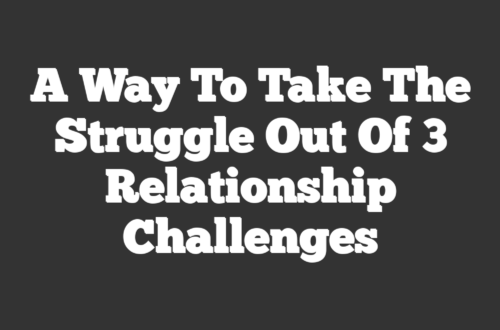Being in a relationship with an emotionally avoidant man felt like an impossible task for me. As someone with an anxious attachment style, I know how frustrating it is to put in so much effort and not receive the same in return. At times, I thought this relationship would never work—I felt unloved, like he didn’t care as much as he used to. If you’re wondering why your avoidant man seems different now compared to the start of your relationship, don’t panic. He hasn’t lost his feelings for you. It’s just his avoidant attachment kicking in. Understanding avoidant men can be tricky, but it’s not impossible. In this blog, I’ll share a blueprint to help you thrive with an avoidant partner and feel loved in return. An avoidant man is like a scared cat—he needs security to feel safe, and I’ll show you exactly how to give him that.
What Is an Avoidant Man?
An avoidant man is someone who may deeply care for you but fears losing his independence or sense of self within a relationship. This type of attachment style—known as avoidant attachment—causes him to hold back emotionally, sometimes giving the impression that he’s distant or uninterested. While he values the relationship, he’s also highly protective of his personal space, which can make him seem aloof or emotionally detached. Avoidant men are often hesitant to get too close or to rely on others, worried that it could lead to emotional dependence. However, this behavior doesn’t mean he doesn’t care—it simply means he’s handling intimacy in a way that feels safer for him. Learn Why Do Anxious And Avoidant Attract & How To Make It Work.
Types of Avoidant Attachment in Men
Avoidant attachment in men can look different depending on the type. The two main types of avoidant attachment are:
1- Dismissive-Avoidant
- A dismissive-avoidant man is highly self-sufficient and independent, often avoiding close emotional connections. He values his freedom above all and may view emotional closeness as a threat to his autonomy. This type is likely to avoid discussing emotions and may shut down when asked to share feelings. While it can seem like he doesn’t need anyone, he’s simply more comfortable keeping a safe distance emotionally. Learn 10 Reasons He Won’t Commit & How To TRICK Him.
2- Fearful or Anxious-Avoidant
- A fearful or anxious-avoidant man craves connection but is equally afraid of it. Unlike the dismissive-avoidant, he feels conflicted—he wants closeness yet fears rejection or abandonment, leading to a push-pull dynamic. He may seem warm and affectionate one moment but then pull away or become distant. This type struggles with trust and often has a history of emotional wounds that make him wary of getting too close, creating a challenging dynamic in relationships.
8 Ways to Thrive with an Avoidant Man
1. Respect His Freedom
An avoidant man highly values his independence. To thrive with him, it’s essential to give him the space to be himself outside of the relationship. Let him enjoy time with his friends, pursue his hobbies, and explore his interests without feeling constrained. Avoid turning the relationship into a cage; instead, embrace your own freedom as well. The irony is that men with avoidant attachment styles need freedom until it’s given to them—when they have it, they often come back feeling more connected and appreciative. For example, my partner loves hiking, which gives him a sense of liberation. Every time he’s out there, he calls or messages as soon as he has a signal, simply because he misses our connection. Allowing him this space strengthens our relationship and makes him more likely to seek closeness on his own.
2. Heal Your Anxious Attachment
If you have an anxious attachment style, it can create a polarizing dynamic with an avoidant partner. Anxious attachment often leads to craving constant reassurance and closeness, which can push avoidant men further away. Healing your attachment style can help balance the relationship, creating a more harmonious connection. Focus on self-care and developing a sense of security within yourself, rather than relying on him to fulfill all your emotional needs. As you become more secure, he’ll feel less pressure and may even become more open to connecting. Learning to self-soothe and manage emotions independently is vital for building a stronger, more resilient relationship. Learn How To ACTUALLY Fix Anxious Attachment Style.
3. Don’t Try Too Hard
Putting too much effort into pleasing or winning over an avoidant man can set unrealistic expectations and create resentment. When you give too much, you often hope for the same in return, which isn’t always possible for someone with an avoidant attachment style. Instead, aim for balanced effort—invest in the relationship in a way that feels good without expecting equal reciprocation. Giving him room to put in his own effort will also help him feel more engaged. A balanced approach keeps things light and encourages him to meet you halfway, rather than feeling overwhelmed by expectations. Learn How I Stopped Being A People Pleaser.
4. Request, Don’t Order
Avoidant men respond far better to gentle requests than commands. If you want him to do something, approach it with kindness and humility instead of assertiveness. For instance, if you’d like to go out for dinner, rather than saying, “We’re going out tonight,” try, “I’d love to eat out tonight; can we go together?” By framing it as a request, you make him feel involved in the decision without feeling pressured. This softer approach helps him feel respected and makes him more willing to meet your needs, as he doesn’t feel his autonomy is being threatened.
5. Change Your Self-Talk
Self-talk plays a powerful role in shaping your relationships, yet many overlook its impact. Think of your relationship as a mirror of your inner dialogue—how you speak to yourself often sets the tone for how you interpret your partner’s actions. If your self-talk is filled with doubts like, “He didn’t text me—he must not care,” it can lead to negative emotions that influence your interactions. Try shifting this mindset by reinforcing positive beliefs. For instance, instead of dwelling on moments he doesn’t reply, tell yourself, “He’s busy, but I know he loves me and gives me his full attention when we talk.” By transforming your self-talk into more supportive statements, you create a healthier emotional space, which strengthens your bond.
6. Stop Chasing
To thrive with an avoidant man, it’s crucial to stop chasing him. Constantly texting or checking in can feel smothering and may drive him away. Allow him the space to come to you on his own terms, respecting his need for independence. Remind yourself that you’re his partner, not his caretaker—let him handle his own challenges unless he seeks your support. This approach builds trust and respect, showing him that you value his autonomy. Giving him room to miss you naturally strengthens the relationship, as he will appreciate the freedom without feeling pressured. 5 Reasons Why He Ghosted Me & How I Become His Obsession.
7-Day Queen’s Challenge: Make Him Obsessed
Queen of His Heart is for the woman who’s done chasing and ready to step into her power. In less than 7 Days you will have him head over heels and 1000% invested in you.

(Its not my fault if he starts craving you 24/7.)
7. Accept Him as He Is
Trying to change an avoidant man can backfire, often making him feel cornered and prompting him to pull away even more. Accepting him as he is—including his avoidant attachment style—is essential. Remember, the only person you can truly change is yourself. Embrace his unique qualities and let go of the urge to “fix” him. If his attachment style is difficult to manage, assess if you can accept him for who he is rather than trying to mold him into someone else. This acceptance not only strengthens your connection but also allows him to feel understood and appreciated.
8. Don’t Blame Him for Your Emotions
It’s easy to feel hurt if he doesn’t reply to messages or seems emotionally distant, but blaming him for your emotions can strain the relationship. Remember, your feelings are your responsibility to manage. Instead of relying on him to regulate your emotions, turn to activities that make you happy, such as spending time with friends or enjoying a favorite hobby. Avoid placing blame on him for how you feel, as it may lead him to feel rejected or defensive. Taking ownership of your emotions empowers you to find happiness within yourself, which can foster a healthier and more balanced relationship.
Key takeaways:
- Loving an avoidant man can be hard, especially if you’re putting in all the effort and not seeing it returned right away. Understanding his attachment style can help you feel more loved and secure in your relationship.
- Avoidant men aren’t unemotional; they’re just more independent. They need freedom to feel comfortable, so giving him space will actually draw him closer and make him miss you.
- Don’t push too hard. When you constantly try, you often build up unrealistic expectations. Allow him space to put in his own effort and give you the attention you deserve.
- Build your own confidence by healing your anxious attachment. Work on becoming more self-sufficient emotionally; this not only helps you but also balances his avoidant tendencies.
- Use gentle requests instead of demands. Asking for something you want in a kind way, rather than telling him what to do, makes him more willing to meet you halfway.
- Changing the way you talk to yourself can have a powerful impact on your relationship. If you’re constantly doubting him, shift to a mindset that reinforces his love for you.
- Avoid chasing him or over-texting. Letting him have his own space allows him to come back to you naturally, strengthening the bond without pressure.
- Accept him as he is, avoidant tendencies and all. Trying to change him may push him away; accept his unique way of loving to create a more harmonious connection.
- Take responsibility for your own emotions and find healthy outlets. This shows him that you can handle your feelings independently, creating more trust and respect.
- Remember that avoidant men need reassurance in their own way. By providing a secure space where he feels accepted, he’ll feel safer in giving you the love you crave.
For more tips on building strong relationships, mastering manifestation, and growing emotionally, follow my blog for deep insights on love, personal growth, and self-development!
If you made it till the end Drop a ❤ to this post.





